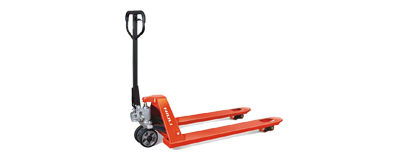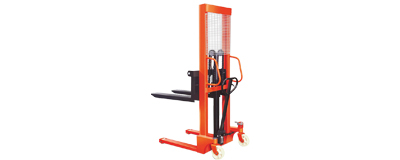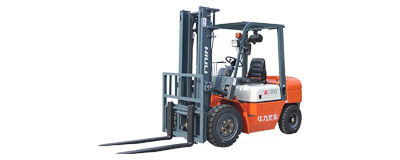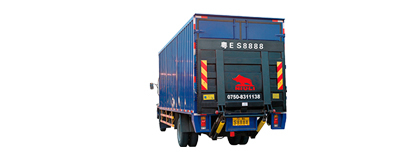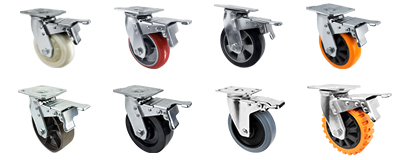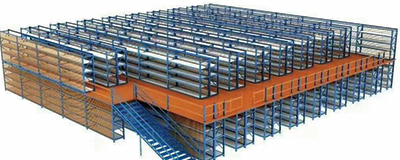In a world where efficiency and sustainability are becoming paramount, the rough terrain electric forklift stands out. These powerful machines aren't just transforming the logistics industry; they're redefining how we approach material handling in challenging environments. If you're a business owner or an operator working in construction, agriculture, or outdoor warehousing, understanding the capabilities and benefits of rough terrain electric forklifts can be a significant advantage. In this post, we will explore what these forklifts are, their lifting capacities, and the benefits they bring to various industries.
The Rise of Electric Power in Material Handling
Electric forklifts have been steadily gaining traction, and their application in rough terrains is a testament to technological advancement. Unlike their diesel or gas-powered counterparts, electric forklifts offer a cleaner, quieter operation, making them an environmentally friendly choice. This shift towards electric power is driven by the urgent need to reduce carbon emissions and meet regulatory standards. The construction and logistics sectors, known for their high environmental impact, are increasingly turning to electric solutions to meet sustainability goals without compromising performance.
Electric forklifts are equipped with advanced battery technology that ensures long-lasting power and efficiency. Innovations in lithium-ion batteries have significantly increased the operational hours of electric forklifts, making them suitable for demanding tasks on rugged terrains. This technological leap allows businesses to maintain productivity while reducing their carbon footprint, aligning with global sustainability trends.
Furthermore, electric forklifts are lauded for their low maintenance costs. With fewer moving parts than traditional forklifts, they require less frequent servicing, translating into reduced operational downtime. Businesses can benefit financially from these savings, allowing them to invest more in other areas such as employee training or technology upgrades.

How Much Can a Rough Terrain Forklift Lift?
The lifting capacity of a rough terrain forklift is a crucial aspect that determines its suitability for specific tasks. Generally, these forklifts can lift anywhere from 5,000 to 36,000 pounds, depending on the model and configuration. This wide range allows businesses to select a forklift that meets their specific load requirements, optimizing both performance and safety.
The lifting capacity is determined by several factors, including the forklift's design, engine power, and counterbalance weight. Manufacturers provide detailed specifications for each model, ensuring that businesses can make informed decisions based on their operational needs. It's important to note that the maximum lifting capacity is often achieved under optimal conditions, and operators should consider the terrain and load stability when determining the forklift's effectiveness.
Proper training for operators is essential to maximize the lifting capabilities of rough terrain forklifts. Understanding load dynamics, weight distribution, and safe operating practices can enhance the forklift's performance and prolong its lifespan. Businesses should invest in comprehensive training programs to ensure that their operators are well-versed in using these powerful machines effectively.
Applications in Construction
The construction industry is one of the primary beneficiaries of rough terrain electric forklifts. Sites often present uneven ground, debris, and tight spaces, which these forklifts can handle with ease. Electric forklifts can transport materials such as bricks, lumber, and steel girders efficiently, minimizing delays and enhancing project timelines.
In addition to material handling, electric rough terrain forklifts are used for loading and unloading trucks and positioning materials for crane lifting. Their versatility means that fewer machines are required on-site, reducing congestion and improving safety. The decreased emissions are particularly beneficial in urban construction sites, where air quality regulations are stringent.
Furthermore, the integration of telematics in electric forklifts allows construction managers to monitor usage, track maintenance schedules, and optimize fleet operations remotely. This data-driven approach enhances decision-making and ensures that resources are allocated efficiently, further boosting project outcomes.
Impact on Agriculture
In agriculture, rough terrain electric forklifts are invaluable for managing large farms and processing facilities. From transporting harvested crops to moving equipment and supplies, these forklifts ensure that operations run smoothly. The ability to operate quietly is an added benefit, as it minimizes disturbances to livestock and workers.
Electric forklifts are ideal for use in barns, greenhouses, and fields where standard forklifts may struggle. Their robust design allows them to handle the demands of agricultural work, including navigating muddy or sandy terrain. This capability extends the versatility of farming operations, enabling farmers to increase productivity and respond to market demands more effectively.
The environmental benefits of electric forklifts are also significant in agriculture. Reduced emissions contribute to cleaner air and soil, supporting sustainable farming practices. Additionally, the lower noise levels promote a healthier and more comfortable working environment for farmworkers, aligning with modern agricultural standards.
Outdoor Warehousing and Logistics
Outdoor warehousing and logistics operations face unique challenges, such as variable weather conditions and uneven grounds. Rough terrain electric forklifts are well-suited to address these challenges, providing reliable material handling solutions that adapt to changing environments. They ensure that goods are transported safely and efficiently, regardless of external conditions.
Electric forklifts are increasingly integrated with smart warehouse systems, enhancing inventory management and operational workflow. This integration allows for real-time tracking of inventory and assets, reducing errors and improving service delivery. The ability to operate continuously without frequent refueling or maintenance breaks increases productivity and reduces costs.
In logistics, electric rough terrain forklifts streamline supply chain processes by facilitating quick loading and unloading of goods. Their agility and precision allow for faster turnaround times, enhancing customer satisfaction and competitive advantage. Companies can maintain high service levels while reducing operational overheads, driving growth in an increasingly demanding market.

Future Trends in Rough Terrain Electric Forklifts
The future of rough terrain electric forklifts is promising, with ongoing advancements in technology and innovation. Manufacturers are continually improving battery efficiency, extending operational hours and reducing charging times. These developments will make electric forklifts even more viable for heavy-duty tasks and extended shifts.
Autonomous forklifts are another emerging trend, with potential applications in various industries. These self-driving machines can operate independently, reducing the need for manual labor and increasing efficiency. While fully autonomous forklifts are still in development, the integration of AI and machine learning technologies suggests a future where they become commonplace.
The focus on sustainability will continue to drive the adoption of electric forklifts. As governments and industries push for cleaner energy solutions, electric forklifts are poised to become the standard for rough terrain applications. Businesses that adopt these technologies early can gain a competitive edge, positioning themselves as leaders in environmental responsibility.
Conclusion
Rough terrain electric forklifts are revolutionizing the way industries handle materials in challenging environments. Their benefits, including enhanced sustainability, reduced costs, and improved efficiency, make them an attractive choice for businesses seeking to adapt to modern demands. By understanding their capabilities and applications, companies can harness the full potential of these machines to drive growth and success.rough terrain electric forklift
For those considering integrating rough terrain electric forklifts into their operations, the time is now. With advancements in technology and a growing focus on sustainability, these forklifts offer a pathway to improved operations and a better environmental footprint. Explore your options, consult with experts, and take the first step toward a more efficient and responsible future.
rough terrain electric forklift
rough terrain forklift truck
small rough terrain forklift
English
العربية
Français
Русский
Español
Português
Deutsch
italiano
日本語
한국어
Nederlands
Tiếng Việt
ไทย
Polski
Türkçe
አማርኛ
Bahasa Melayu
ဗမာစာ
Filipino
Bahasa Indonesia
magyar
Română
Čeština
қазақ
Српски
हिन्दी
فارسی
Kiswahili
Slovenčina
Slovenščina
Norsk
Svenska
українська
Ελληνικά
Suomi
עברית
Dansk
اردو
বাংলা
Hrvatski
Eesti keel
සිංහල
Oʻzbekcha
latviešu
Euskara
Български
Català
ქართული
Hausa
íslenska
Lietuvių
Lëtzebuergesch
ਪੰਜਾਬੀ

